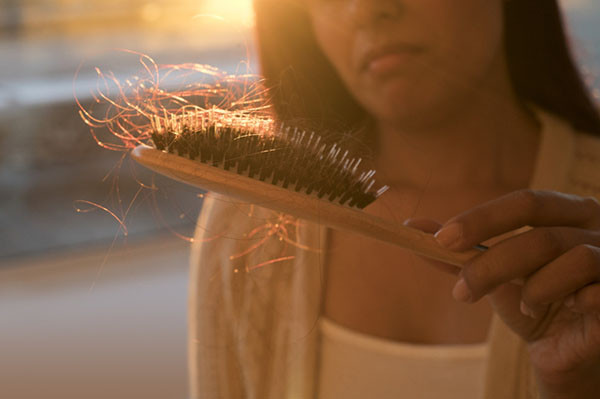
How — and why — to fit more fiber and fermented food into your meals

UTI in older women: Why postmenopausal women are susceptible to urinary tract infection, and what to do about it

Can a routine vaccine prevent dementia?

Some adults may need a measles booster shot. Who should get one and why?

Less butter, more plant oils, longer life?

Healthier planet, healthier people

Counting steps is good — is combining steps and heart rate better?

Appendix pain: Could it be appendicitis?

Can saw palmetto treat an enlarged prostate?

How does Ozempic work? Understanding GLP-1s for diabetes, weight loss, and beyond
Skin and Hair Archive
Articles
Adult female acne: Why it happens and the emotional toll
Women are more likely to get acne after age 20 than men. Unfortunately, treatment options that worked in the teenage years may not work as well in adult females. The emotional toll of acne may include a higher risk of developing depression, and having severe acne can negatively affect quality of life.
Why do I itch more at night?
Nighttime skin itching can stem from dry skin, hormone changes, certain medications and skin care products, and rarely, a more serious illness. It can help to change bedding or pajamas, take short baths or showers, apply moisturizer liberally, and use a humidifier.
Why do I burn even if I'm slathered in sunscreen?
People can get sunburned even with sunscreen on, particularly if they use old sunscreen or certain drugs and skin care products that leave skin vulnerable. People should stay out of the sun at midday, wear a hat and sunglasses, and frequently apply sunscreen with SPF 30 or higher.
How can I heal my dry hands?
Frequent handwashing may lead to dry, cracked skin. Strategies such as lowering the water temperature and moisturizing with a heavy hand cream after washing can allow the skin to heal. Also try wearing cotton gloves over a thick moisturizer at night.
What is alopecia areata and how is it managed?
Hair loss is a common problem for many men and women, but what does it mean to have alopecia? Alopecia areata occurs when the body's immune system attacks hair follicles, resulting in hair loss. AA can affect the scalp, eyebrows, eyelashes, or anywhere hair grows on the body.
When is a drug rash more than just a rash?
Rashes are a common side effect of many medications, and while they can be annoying, they typically run their course over a week or two. But not all drug rashes are mild — and some can even be deadly. How can you tell a serious rash from one that is just a nuisance?
Protecting the skin from the sun doesn't increase fracture risk
Protecting the skin from the sun doesn't increase the risk of vitamin D deficiency or bone fracture, according to a recent study.
The heel problem that threatens your mobility
Thick, dead skin patches (calluses) on the heels sometimes become cracked. The condition, known as cracked heels, makes it hard to walk and increases the risk for infection, since cracks open the door for bacteria to enter the body. If infected, cracked heels can turn into foot wounds that become hard to heal, especially in people with diabetes or peripheral artery disease who have poor circulation in their legs and feet.

How — and why — to fit more fiber and fermented food into your meals

UTI in older women: Why postmenopausal women are susceptible to urinary tract infection, and what to do about it

Can a routine vaccine prevent dementia?

Some adults may need a measles booster shot. Who should get one and why?

Less butter, more plant oils, longer life?

Healthier planet, healthier people

Counting steps is good — is combining steps and heart rate better?

Appendix pain: Could it be appendicitis?

Can saw palmetto treat an enlarged prostate?

How does Ozempic work? Understanding GLP-1s for diabetes, weight loss, and beyond
Free Healthbeat Signup
Get the latest in health news delivered to your inbox!
Sign Up











